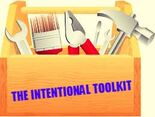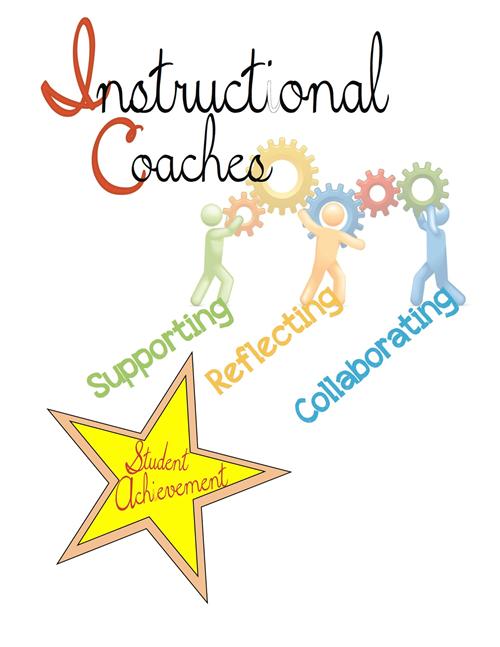For me, the most beneficial part of my work as a coach is when I get to partner with a teacher for a coaching cycle. That's where I've learned that the critical components of instructional coaching include: Pre-observation, Coaching kick-off, observation, and the debrief.
Pre-Observation
During the pre-observation stage, I simply go to the teacher's classroom to collect some baseline data. Of course the teacher is aware that I'm coming to their room to observe. Some of the things that I look for are procedures and expectations, student engagement, instructional strategies, the classroom environment, as well as the climate and culture in the classroom. After the pre-observation, I meet with the teacher shortly afterwards to share my observation notes and begin the collaboration work.
Coaching kick-off
During this phase of the coaching cycle I have a coaching kick-off meeting with the teacher. I call it "Cupcakes with Coach". I bring cupcakes, juice, and water to their classroom for our first collaborative session. At this meeting, I share my observation notes with the teacher. We also discuss the type of intervention(s) or instructional goal the teacher wants to work on. If the teacher needs assistance determining a behavior or academic goal for students, I use the data that I collect from my pre-observation to show the them why a certain area(s) needs improvement(s).
Because I coach teachers in math and science, the teachers that I work with generally set instructional goals around things like Number Talks or Math Workshop. They also seek support in learning how to develop high level formative assessments. Teachers that are new to the building often seek out coaching support for demonstration lessons that highlight the pacing of the math curriculum. And for teachers that are new to the field, they typically request coaching support with Classroom Management. No matter what type of coaching support teachers request, when we meet during the coaching "kick-off", we typically plan a lesson together, establish a specific academic or behavior goal by making sure that it is one that will show improvement in student achievement. We also schedule days that I will come to their classroom during instructional time, as well as when we will meet one-on-one to debrief and plan next steps for instruction.
Modeling
During this phase, I go to the teacher's class to model the skill or instructional strategy they wanted to work on during the coaching cycle. While the teacher watches me model the lesson, they take notes on specific things that we discussed during our planning meeting. So as they are taking notes, he/she knows exactly what to watch for when watching the model lesson because it was discussed during the Coaching Kick-Off meeting.
Observing, Feedback, and Support
After the teacher takes notes and observes me model a lesson, we meet to debrief and talk about the specific things they saw. We set a plan of action for how the teacher will implement that skill/strategy in the next lesson. If needed, I also role play with the teacher. This is helpful because the students aren't in the class so the teacher gets a chance to practice while receiving feedback on the spot. From there, the teacher is ready to try the skill or strategy in his/her classroom with students. My job during that time is to go to their classroom to observe them and provide feedback. Sometimes the teacher and I will co-teach a lesson together if they request it. When this happens, I usually start the lesson off, then switch roles with the teacher. The teacher and I debrief afterwards, discuss next steps, then the process starts all over again starting with modeling, co-teaching, etc. In case you're wondering, a coaching cycle with teachers typically last from 4-6 weeks. But even when our work together ends, I still like to check-in with the teacher from time to time just to see how things are going. This is also an important part of my coaching work because it lets the teacher know that we both have the same shared vision as it relates to student achievement.
When I'm not working with a teacher in a coaching cycle, I support them by collaboratively analyzing formative assessment data to make instructional decisions. I meet with teachers so we can collaboratively bounce innovative ideas off one another. And I also care about the well-being of the teachers in my school, so I am there to lend an open ear when they need someone to talk to; this means that trust and confidentiality play a vital role in the teacher-coach partnership...so...that's my job as an Instructional Coach in a nutshell...
Because the role of a coach is so multifaceted, I've shared some great resources with you under this week's Intentional Toolkit, I hope you find these resources useful.
This quarter, I'm currently working with teachers in Kindergarten, First Grade, and Fourth Grade. The thing I like the most about the teachers this year is how reflective they are when it comes to instruction; needless to say this ultimately impacts student learning. In fact today, after I modeled a math game called "One More, One Less" in Kindergarten, the teacher and I talked briefly about some of the things we observed students doing while playing this game with a partner. What we're really pleased with is how students are grasping how to count on from a number instead of starting back at the number one! If you've never taught Kindergarten believe me when I tell you, this is a MAJOR cause for celebration! I'm hoping they continue to use that strategy with little to no support from me or the teacher...we'll see how it goes, but for now I'll keep my fingers crossed, my feedback to the teacher timely, and my hopes up as I continue to watch the student's number sense soar! Until next time, go out there and be GREAT!
References
www.instructionalcoaching.com/what-do-instructional-coaches-do/
www.ascd.org/publications/educational-leadership/jun16/vol73/num09/The-Many-Roles-of-an-Instructional-Coach.aspx
www.cultofpedagogy.com/instructional-coach/
https://youtu.be/XLF90uwII1k




 RSS Feed
RSS Feed
